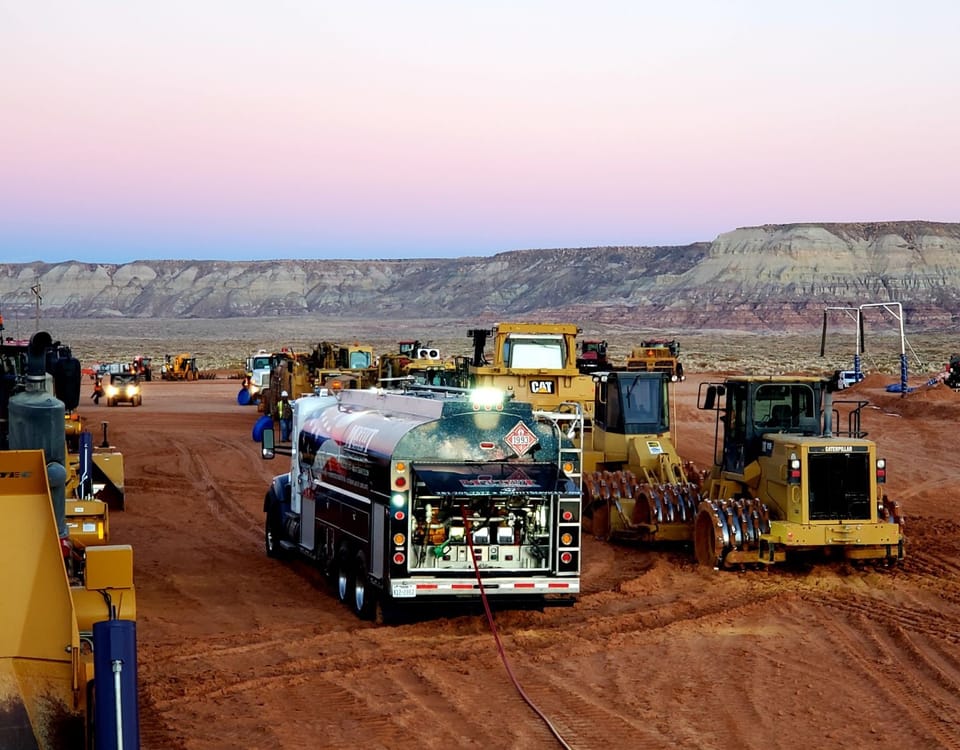
Buying bulk fuel can be a tricky operation. Fuel prices change often. Hurricanes, war, and fluctuations in supply can all make those prices go up overnight. If your company relies on bulk fuel to keep operations going smoothly, then it is vital that you understand how to buy bulk fuel the smart way.
Today, we are going to look at the basics you need to understand to ensure you buying bulk fuel properly and efficiently. Let’s jump in.
Practice Smart Fuel Management
An effective fuel management approach means everyone is involved, not just the fuel manager. The overall goal is not just to get the best possible price when buying bulk fuel. Smart fuel management works to make sure the fuel is used properly and efficiently. This is especially important if you aren’t large enough to have a dedicated full-time fuel manager. Start by creating smart fuel practices throughout your company so everyone has a clear understanding of using fuel efficiently.
Take a Comprehensive Approach to Fuel Usage
There are two main goals to fuel management. The first is to keep fuel costs at a minimum, and the second is to provide fueling facilities for your drivers. You should not focus solely on the price of buying bulk fuel. You must also focus on your employees. Cost cutting is important, but a big factor in proper fuel management is high-quality, experienced drivers.
It’s also important to note that buying bulk fuel is not a one-time thing. You must constantly work to negotiate prices and discounts. Keep track of fuel price fluctuations and stay up to date on policy changes. Train your drivers to help you do this as well. Efficient fuel management depends on the whole company, requiring cooperation and engagement at every step.
Get a Professional Fuel Manager
Even if you don’t necessarily need a full-time fuel manager, you do need someone in control over the fuel–related duties. This person will be buying bulk fuel, analyzing the fuel market, creating a fuel plan, and ensuring the plan is carried out well. They are also the contact person for drivers, suppliers, and vendors. The fuel manager needs to be financial literate and be able to understand spreadsheets, calculations, projections, and other fuel-related information. The fuel manager must know the difference between market fuel prices and pump prices.
Perhaps most importantly, they must be good at communicating and negotiating contracts. The fuel manager will ultimately be the person most responsible for keeping fuel costs at a minimum ensuring everyone is informed on fuel policy.
Establishing a Fuel Buying Network
Drivers can technically get fuel from anyone, which would make cost management rather difficult. The solution is to establish a limited fuel buying network. This ensures drivers are getting the best price on fuel and it allows you to concentrate volume, making negotiations of discounts easier. You can set up this fuel buying network by choosing primary and supplementary fuel stops, ranging from 200 miles to 800 miles apart. You must make sure your drivers are on board and understand the network. Use their knowledge to establish the best stops for them. Your drivers must participate or the fuel buying network plan will be pointless.
Buying Bulk Fuel
Buying bulk fuel will save your company time and money. A reputable wholesale fuel dealer can also provide additional services to enhance your fuel management program, like bulk fuel delivery and onsite fuel storage tanks. Using a trusted fuel provider makes your fuel manager job much easier because they only have to work with one vendor.
If you are looking into buying bulk fuel, use a company that can get you a great price and guaranteed availability, even in emergencies. Moffitt Services has been in the business for over 70 years and we understand your fuel needs. Learn more about our bulk fuel services and start working with us right away.





1 Comment
Thanks for the reminder that proper fuel management is also a huge thing to consider when it comes to getting bulk fuel delivery services. I’m thinking about finding a good service like that because I’m thinking about stocking up on fuel in my garage. Living in a rural area makes doing that a necessity.